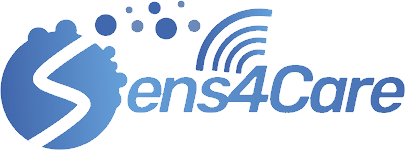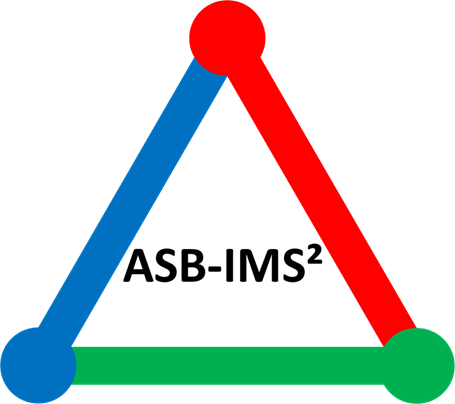Today there has been the kick-off meeting, where the the successful bidders made presentations of their solutions to the Monitoring Team and the Consortium.
Below the presented solutions:
 |
The Sens4Care project aims to design a ground-breaking system for surveillance and infection control targeting Multidrug-Resistant Organisms (MDROs) in hospitals. The Sens4Care solution is a complex, multi-component technological system which: (1) detects most common MDROs in critical hospital settings; (2) supports health care professionals and managers to improve hygiene and better control environment; and (3) trains staff, patients and visitors on behaviour. The Sens4Care solution is composed by advanced Volatile Organic Compound (VOC) detectors, machine learning algorithms, internet-of-things (IoT) platform, web and mobile applications for end-users. The ultimate goals of Sens4Care are to improve the quality of care processes in hospitals, reduce costs and operational impact of infections caused by MDROs, improve appropriateness of antimicrobial medicine usage, and reduce community and social care impact of MDROs acquired in hospitals. The Sens4Care consortium is composed by two companies: Tech4Care (lead contractor, Italy), focused on development of innovative digital health and mHealth solutions; and Sens Solutions (Spain), with high-level expertise in smart sensors and detectors for air monitoring.
[.pdf version available here] |
 |
Antimicrobial resistance (AMR) has become a global problem, being responsible for about 25,000 lives each year across Europe alone. Comprehensive efforts and multiple approaches are needed to minimize the pace of resistance not only by studying emergent microorganisms and resistance mechanisms but also through diagnostic technologies like advanced sensing devices and information systems with capacities to gather information from different clinical datasets and to monitor and prevent infectious episodes and antibiotics consumption in a connected and interoperable way. The CULTURE project pursues three objectives: (1) implementation of a real time detection system for the top priority pathogens identified in the ANTISUPERBUGS health challenge; (2) implementation of a digital solution that will integrate, in a single point, the data obtained through the CULTURE sensing device as well as other relevant datasets; (3) implementing a smart and efficient surveillance system able to exploit the combined data gathered from the different sources.
[.pdf version available here] |
| Bugwatcher is the proposal from a Consortia lead by Grupo Pulso, a Spanish company with more than 20 years of experience developing digital healthcare projects. The other members of the Consortia are Nuwave Sensors, an Irish company specialized in the development of air monitoring devices; and Paperdrop Diagnostics, a Spanish company focused on developing paper-based biosensors for rapid diagnostic-tests.Bugwatcher will be able to detect three different type of bacteria (Clostridium Difficile, Klebsiella Pneumoniae and Multi-resistant Staphylococcus Aureus) in the hospital facilities, in humans and in any inanimate surface surrounding them. The system will be formed by different screening devices that will activate an alarm in case any of the three bacteria is detected and these warnings will be integrated in the hospital information system. Thanks to the geolocalization incorporated in the devices, the bacteria will be geolocated at any time which will help professionals make more accurate decisions related to the isolation and drugs’ administration to the affected patients.
[.pdf version available here] |
|
 |
The problem against Multi Drug Resistant Organisms and thereby Hospital Acquired Infections can be solved only through early and accurate detection of these microbes and preventing their further spread. An integral solution for the above will improve the quality of healthcare in hospitals, reduce the costs and operational impact from these infections, improve targeted medicine thereby reducing the mortality rate due to these superbugs. Four companies from Germany, namely; ION-GAS GmbH, Meta IT GmbH, Logic Way GmbH and UCEF GmbH have partnered in this ANTISUPERBUGS PCP challenge aiming to develop and provide a comprehensive solution in tackling these Superbugs. The Anti-Superbugs: Infection Control, Monitoring and Information Systems based on Ion Mobility Spectrometry (ASB-IMS²) aims to address the three paramount superbugs, namely; Klebsiella Pneumonae, Clostridium difficile and Staphylococcus aureus (MRSA) through rapid, non-invasive and accurate detection and identification based on ultra-sensitive ion mobility spectrometry. This breath-based identification will also be extendable to wounds and fomite region analysis. State-of-the art, smart technology will be implemented in aiming to prevent further spread of these HAIs by promoting and improving hand hygiene amongst Hospital staff and patients. An integration of the above two solutions for rapid non-invasive detection & identification and prevention of further spread will be achieved by a modern Infection Prevention Surveillance System (IPSS) that will cumulatively provide continuous reporting, prevention of spread and prompt intervention. This multi-faceted ASB-IMS² solution will create a positive impact and advancement in Point of Care systems and targeted medication in eliminating these Superbugs.
[.pdf version available here] |